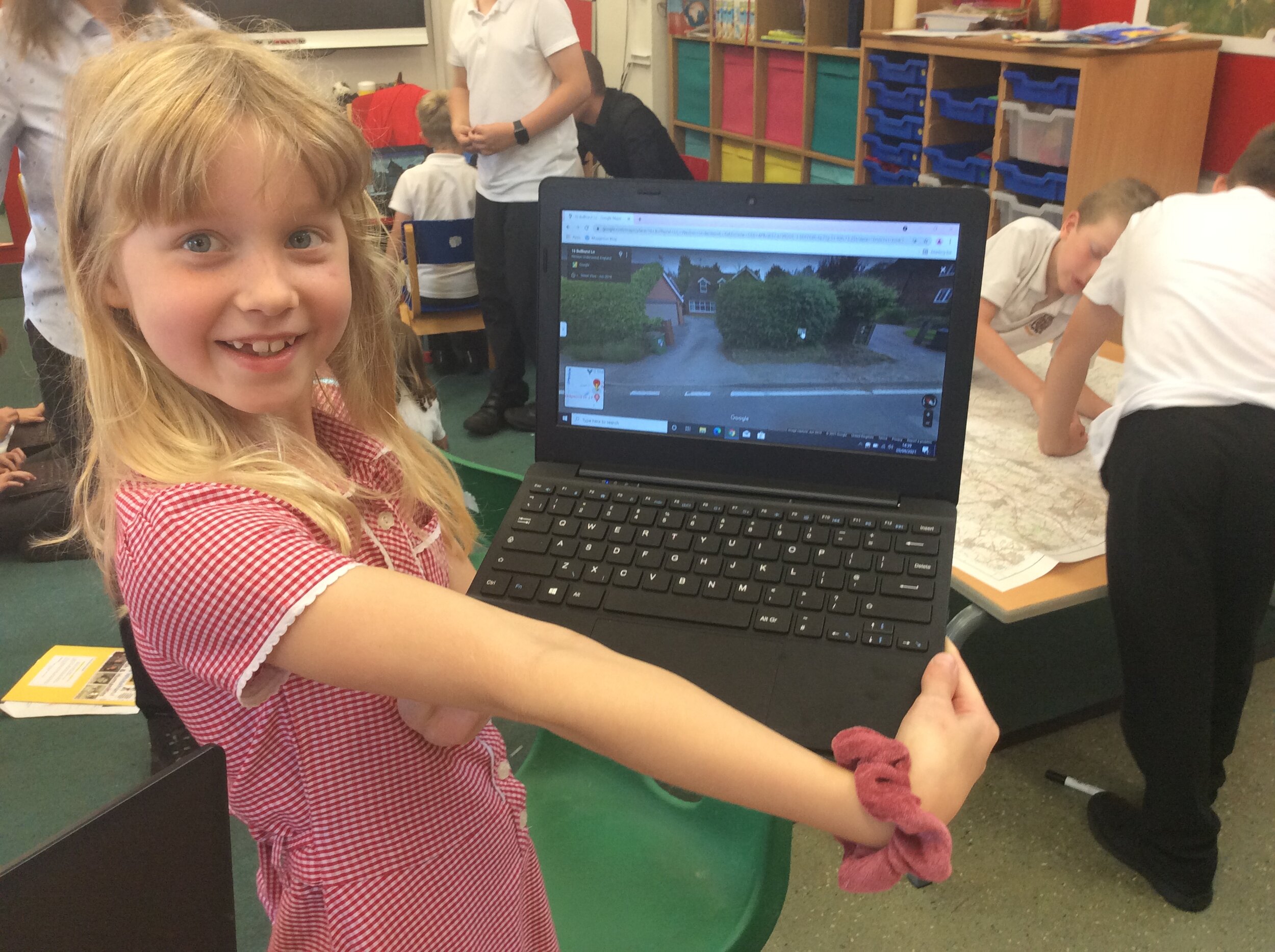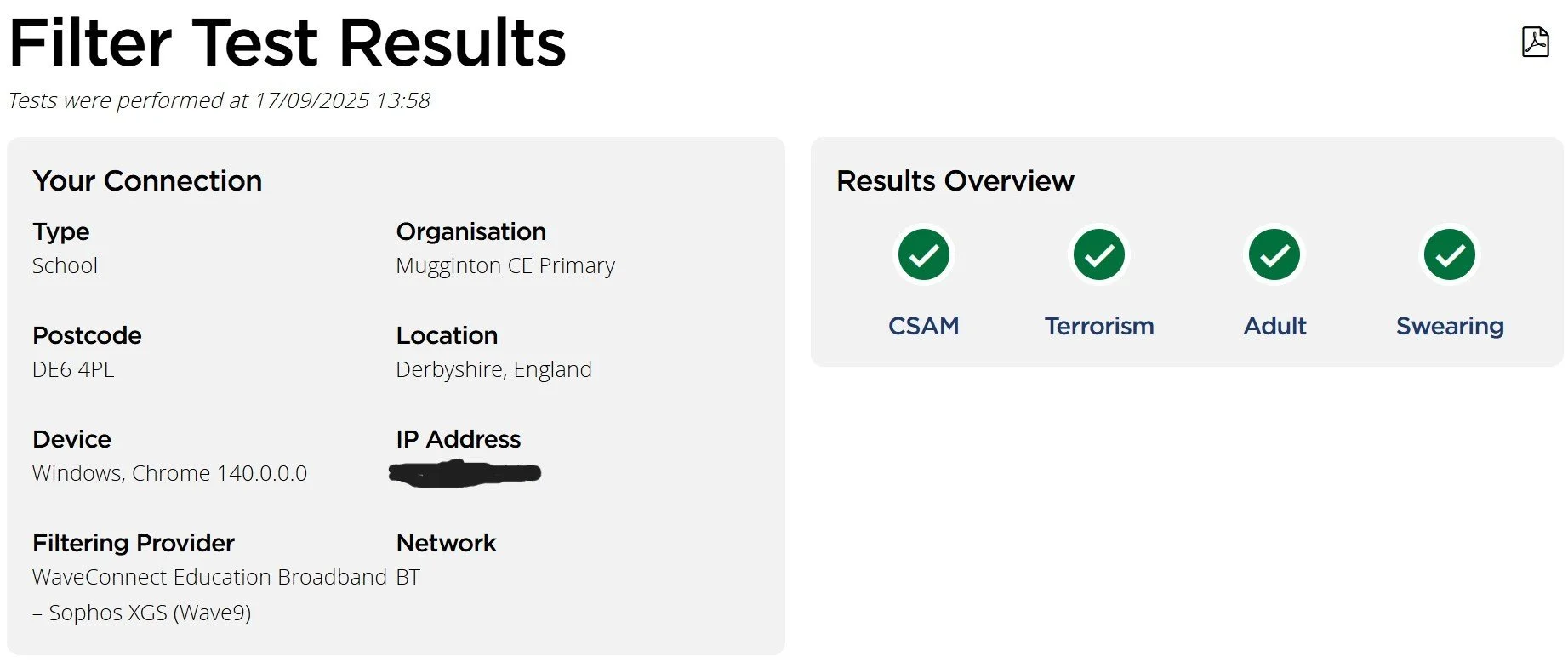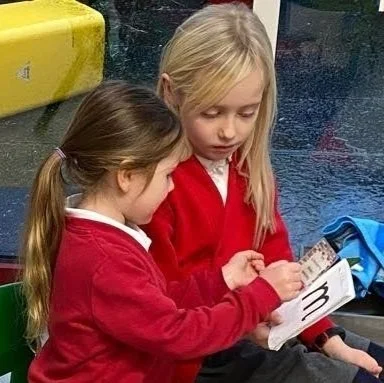
INTERNET SAFETY
We recognise the potential of ICT applications and the Internet to transform learning and promote engagement, enjoyment and creativity. Our children use ICT on a daily basis. We take Online Safety extremely seriously – our latest Ofsted report agreed with us that our children have a good understand of how to keep safe, including with cyber-bullying. Policies relating to Online Safety are available at the bottom of this page.
THE BEST PIECE OF ADVICE WE CAN GIVE YOU IS NEVER PUT ANYTHING ONLINE THAT YOU WOULDN'T WANT TO SEE ON THE SIDE OF A DOUBLE DECKER BUS...
We are very proud of our I-Vengers who are doing a great job raising awareness of online safety.
Our Online Safety Policy describes in detail how we go about safeguarding pupils online.
Our junior children have written this information sheet to help parents support their children to play safely online.
After Safer Internet Day, some of our pupils wrote an open letter to parents about using the Internet. The letter is available here: Read the letter on this link
Why Does Online Safety Matter?
We believe that alongside safeguarding, we have a responsibility to prepare our children for life in a digital world where mobile phones and the internet are an integral part of our lives. Please watch the hard-hitting video below for an example of why the promotion of online safety matters so much to us at Mugginton. This recent report on the impact of Social Media in adolescence is sobering reading. This report on the algorithms platforms such as TikTok use is equally eye-opening,
Internet Safety Advice
Internet Safety is an important part of keeping children safe at Mugginton Church of England Primary School. We have extensive security measures in place, which are monitored both internally and externally, to help safeguard pupils from potential dangers or unsuitable material. Our filtering systems are tested frequently and we recommend that parents and other stakeholders looking after children do the same by using a tool such as testfiltering.com. Results for the school Filter Test are below:
Internet Safety incidents are recorded and managed in accordance with our Online Safety Policy (available at the bottom of this page). Online Safety is taught to all pupils explaining and demonstrating how to stay safe and behave appropriately online whilst enjoying the amazing benefits which ICT applications offer us all.
We can only be successful in keeping children safe online if we work with our parents to make sure our Online Safety message is consistent. It is important that parents speak to their children about how they can keep safe and behave appropriately online. Below are guides to help you begin conversations about Online Safety.
7 tips to start a conversation about online safety
Cyberbullying conversation starters
We believe that it is essential to be realistic and also pragmatic - banning the internet or technology will not work long-term; it can make a child less likely to report a problem in the future. Education around safe use is what we believe to be essential.
At the bottom of this page is a link to what each year group will cover as part of their computing lessons and Online-Safety learning. The following links will give you access to three general online safety guides.
Responsible Internet and Technology Use
The following guidance is set out in our annual home-school agreement which all parents/carers sign at the beginning of the year.
I will treat all of the school’s technology carefully and with respect.
I will not interfere with other people’s files and folders.
I will ask for permission before using ICT equipment and will use it only for schoolwork.
I will use the Internet (and occasionally, email) only when a teacher has given me permission and is supervising me.
Any messages I send on any platform will be polite and sensible.
I will never share personal details such as my address or telephone number.
If I see anything I am not happy with or receive messages I do not like, I will tell a teacher straight away. I will never look for anything unpleasant deliberately.
I will never download files unless asked to by a teacher.
I will not share logins/passwords with other people.
I will never upload images of school activities to any social networking site.
I understand that school can check my computer use and that my parents can be contacted if school are worried about my online safety.
I understand that if I break these rules deliberately, I could be stopped from using ICT in school.
I will follow these rules, have fun and be helpful to Mrs Sweeney if I stay for ICT club on Fridays. If I want to learn more, I can look at www.thinkuknow.co.uk
Online support and advice
Regardless of whether it is home or school, if you are worried about something online or about somebody acting inappropriately, please contact school. Alternatively, you can find help and advice at the following websites:
http://ceop.police.uk/
CEOP (The Child Exploitation and Online Protection Centre) delivers a multi-agency service dedicated to tackling the abuse and exploitation of children in the real and ‘e’ world. Often it is referred to as an online 999. By clicking on the button, young people and parents can get advice on a range of issues such as viruses, hacking and dealing with bullying online.
Using the Internet, Image-searching and online gaming, including Live Streaming
As stated above, we believe that the Internet is a wonderful creation which can enhance our lives and bring people together when used well. Part of our role is to help children and families to experience being online positively.
First, Google offers a safer search option for children searching on the Internet. Information about Safesearch is available here: https://www.makeuseof.com/what-is-google-safesearch/
Our children report that they use Google most to ‘search’ at home followed by Safari. Older children enjoy using computer games and apps. The most popular site by a significant margin was YouTube.
Gaming
When children are accessing games via Xbox LIVE or Playstation Network, privacy settings should be reviewed and set up. Information is available here: https://www.playstation.com/en-gb/support/account/privacy-settings-psn/
We strongly recommend this website to support you in keeping up-to-date with the games your child might be playing. You can also ask questions and request more information - Taming Gaming is highly recommend.
A useful pamphlet setting out ways to keep children safe when online gaming is available here and a pamphlet about live streaming is available here
Social Media and Commonly Used Apps
The Faith Council are in the process of selecting our Digital Ambassadors whose job it will be to promote safer Internet Use, using the I-Vengers resources.
In preparation for secondary school, our older children have written our children’s Peer on Peer Abuse Policy, which is available at the bottom of this page.
General support and advice for supporting your child’s use of social media is available below:
Apps
Following our pupil questionnaire, we identified the following as the 6 most commonly used apps amongst our families. We hope the following information sheets are useful to you.
Screen Time
Following the two school closures and children’s necessary increase in screen time to learn at home, we are aware of parents’ concerns about the amount of screen time the children have got used to experiencing every day. This was very clear in our most recent parents evening appointments. We hope the following advice sheets are helpful - please contact school if you require more information and support.

Further advice is available here:


















